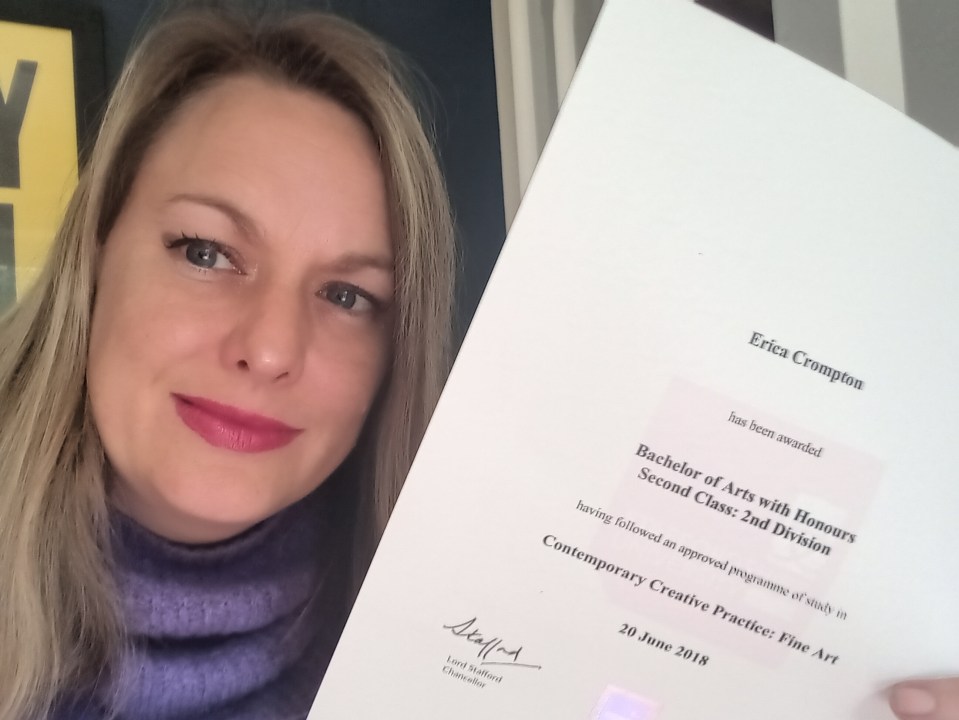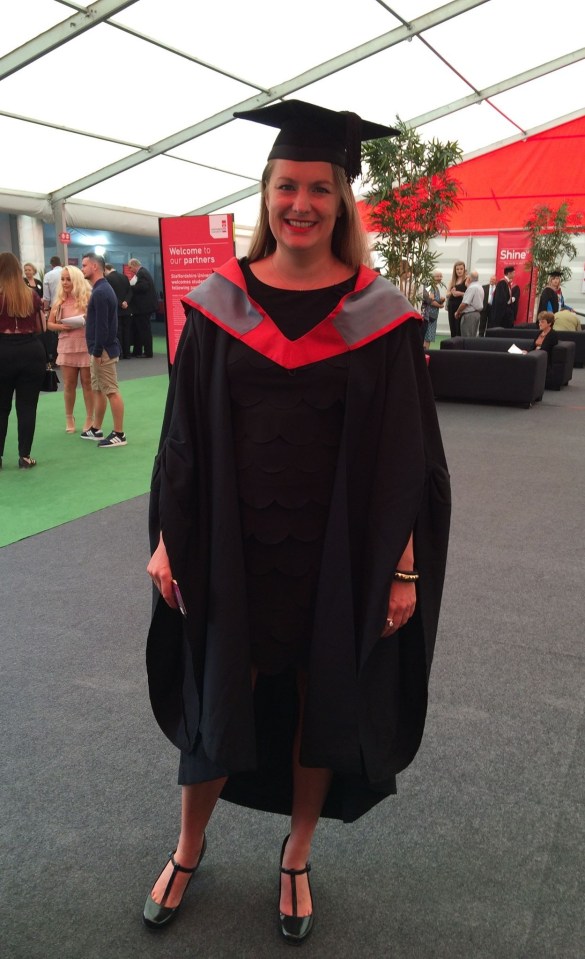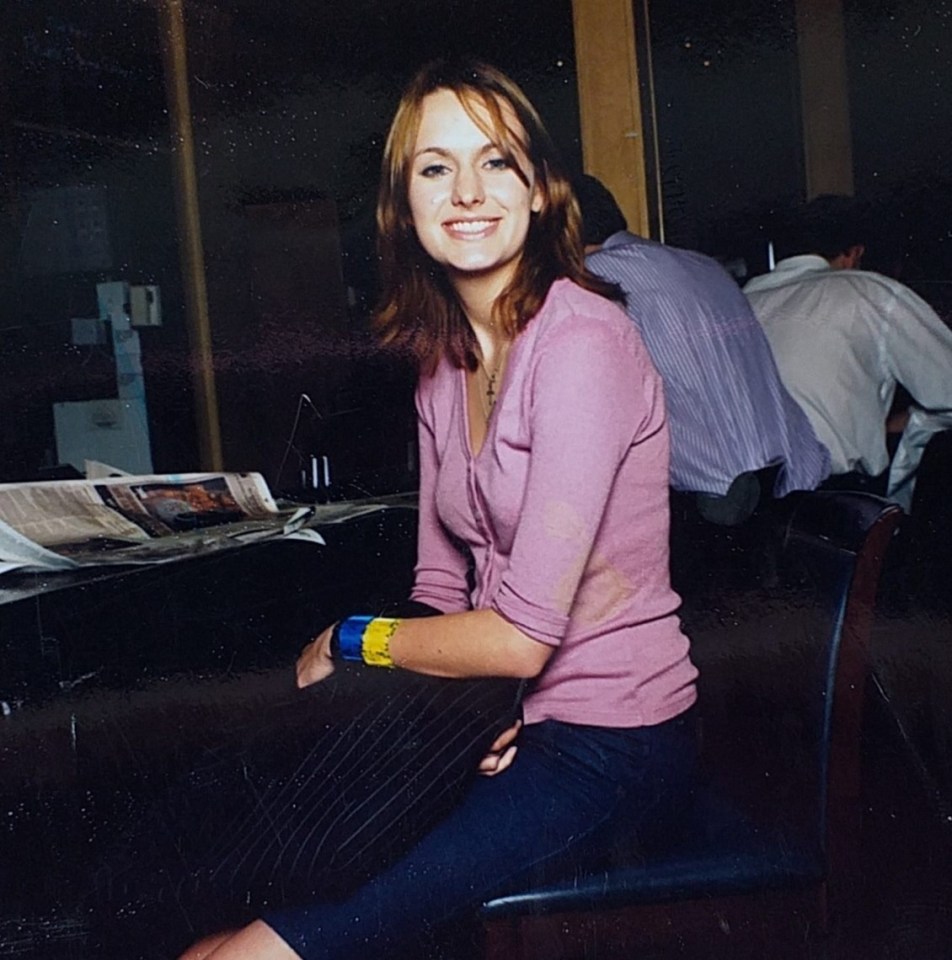THROWING my graduation cap into the air for the third time, I couldn’t help but feel like this time my studies might finally pay off.
I was sure that my years of toiling over essays and studying books might actually lead to the right career.
That was in 2018 and seven years on at the age of 44, despite my qualifications I am left relying on benefits.
Instead of a best-selling novel to my name, or a Turner Prize winning art collection to celebrate, my ‘Mickey Mouse’ degrees have left me with just £1,300 a month of unemployment benefits to live on.
But I am far from alone.
Unemployment figures for graduates reached 630,000 in 2025 and 11.9 percent of all Universal Credit claims are coming from graduates like myself.
Had I known this was the future, I might have stopped at just one degree, my foundation in journalism.
But instead I dropped out of a fashion design degree aged 22 and topped it up with my third year of a graduate degree in fine art, aged 37 – so I could graduate with honours.
I’m flabbergasted as to why my fine art and journalism degrees -along with photography and criminology degree courses – are being blamed for the rise of the ‘dolester dons’ (graduates on benefits)?
All my studies have in recent years, been written off by Oxford-educated MPs as ‘Mickey Mouse degrees’ and are cited as the reason for rising unemployment.
It’s not really new to me, it seems if you’re not studying law or nursing, degrees are seen as less. Even at PhD level.
I am left wondering why employers aren’t taken to task, instead of us graduates, for low wages that simply aren’t worth getting dressed for in the morning?
£23,000 a year you say? Before tax? I probably make-up more than that on Universal Credit and a side hustle, all tax free.
My studies have, in total, landed me in £60,000 worth of debt and judging by the salaries they would have earned me I would have been better off choosing benefits from the get go.
And I should know having experienced just how poor you can be even when you’re working full time.
For a while I lived in London as a fashion assistant for a broadsheet on £11,500 pa and later as a fashion writer for a retailer’s website on £22,000 a year.
I boosted my income with two cash-in-hand side jobs as bar staff, for £20 a night shift and weekend market trader for £40 for two days a week, neither of which required a degree.
Eventually I was priced out of Lonon aged 29.
I was demoralised and exhausted and ultimately it led to a psychotic breakdown.
After I was hospitalised with psychosis I began to meet other ‘drop outs’ – people who live on benefits because they too had been hospitalised with a severe mental illness like mine and I envied their lifestyle and ability to manage their mental illness better than I did.
Graduate jobs hit an eight-year low
New data from the Indeed Hiring Lab reveals graduate job ads are down 12% compared to last year and even worse than during the pandemic.
In fact, grad roles are now at their lowest point since at least 2018, as employers hold onto staff and cut back on new hires.
But it’s not all doom and gloom. Indeed’s mid-year labour market update shows there are sectors hiring and they’re paying some seriously high wages, with top jobs offering up to £200,000 a year.
Expert Jack Kennedy, senior economist at Indeed, said: “The UK labour market started 2025 with serious headwinds but rather than crash, it’s seen a gradual softening.
“While hiring appetite is weak, job losses have remained modest. The big challenge now is for new entrants like graduates, who are finding it tough to get a foot in the door.
“But sectors like education and real estate are still hiring in big numbers and roles offering flexibility, like hybrid or remote jobs, are holding up too.”
I decided to join them and put in a claim for ESA and PIP in 2010. It felt nice to ‘drop out’ of competitive circles and the daily commute. It was a relief, too.
I wouldn’t want to go back to my high flying career days either.
Today I enjoy caring for my partner in his wheelchair at home, while he looks after my mental health. I even keep my creative juices flowing and income topped up writing articles.
I’m learning to take it easy and not stress about work or finding a job – all at the good advice of my psychiatrist, that to stay as well as I am and prevent a relapse, I “need to take it easy”.
I do wonder if us unemployed graduates know something that working class taxpayers don’t?
That work doesn’t work for us serfs and turfs. With a blend of benefits and part-time work as a journalist and carer, I take home the same as the minimum wage and usually have my feet up.
I always say “people before pay-cheques” and I prefer staying home to care for my wheelchair-using boyfriend, having the free time to see my friends and mum, than toiling 8-hours a day away.
So call me lazy but the reality is I might just be smarter than those who are putting in 40 hours of blood, sweat and tears for £12 an hour.
















